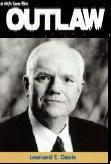
I have played the game myself. It's useful when you're writing a blog. But honesty demands that you use the extrapolation as just a possibility, a question for the reader, a point for discussion. Playing the reader for a fool, running around assuming the worst when you haven't even done your homework yet, that makes me mad.
While the TV heads have taken to specializing in this kind of laziness, spending last weekend telling us Apple was about to sell our trips to the highest bidder (or give it to the police so they could spy on us) – as if either cares – the players on my open source beat were having some of the same game on with Google's loss of a Texas patent suit.
As half an hour of Googling would have told anyone, juries in the Eastern District of Texas are notorious for enabling bogus patent awards. Many companies have built offices in and around Tyler, Texas specifically so patent trolls can sue over nonsense. Even the judges who hear these cases sometimes tire of the antics.
This did not stop some from taking Florian Mueller's Oh Noes as gospel. Florian's German, not Texan. He knows there are courts there who can be as loony as any in Texas, but the appeals process there is shorter, and what happens in Germany usually stays in Germany. (He's also a very nice guy, as I learned when I visited him in Munich last year, where this picture was taken.)
But American reporters have the Google. Use it. Especially when Google itself is a defendant.
Instead we have lead sentences like this. “In a decision that could have consequences to many of Google's businesses.” The plaintiff, “Bedrock Computer Technologies LLC,” is described uniformly as a “small Texas company,” Google as the equivalent of Tom Wolfe's “Great White Defendant” from “Bonfire of the Vanities,” and they're going to take your Android phone away from you.
Please. Stop.

Somehow, Garrod's name (and his record as a troll) never got to the Financial Times, even though it's right there, in black-and-white at The Prior Art blog, and has been for almost two years.
Second, remember the record of the Eastern District of Texas. Anything a jury there does must be taken with a grain of salt. Same with any opinion issued from the bench by the judge who heard this case, Leonard Davis.

But don't let that stop a reporter from scaring the pants off people. Especially a lazy one. Don't spend a half-hour with the Google, guys. Write first, and ask questions later.
Sheesh.











I think you’ve been hijacked or something. Every time I click on the Dana Blankenhorn title, I get routed to something called map-my-walk, which wants me to click to download a program to read it by, and has no escape per se. I did find a new link on the feed saying “click here to read this online.” and am using it now.
But I thought you’d like to know.
I think you’ve been hijacked or something. Every time I click on the Dana Blankenhorn title, I get routed to something called map-my-walk, which wants me to click to download a program to read it by, and has no escape per se. I did find a new link on the feed saying “click here to read this online.” and am using it now.
But I thought you’d like to know.
As an experiment I mapped my Easter afternoon bike ride and made it an item here. I had no idea I was doing anything to the rest of the page. I’ll check it out and may just delete the ride piece.
Thanks
As an experiment I mapped my Easter afternoon bike ride and made it an item here. I had no idea I was doing anything to the rest of the page. I’ll check it out and may just delete the ride piece.
Thanks
EDTX isn’t even in the top 5 of most favorable for plaintiff districts for patent suits. There was a short period around 2005-2006 when plaintiffs had a lot of success, but that was an anomaly. Defendants have been winning the majority ever since.
Patent plaintiffs have the highest win rates in North Texas (55%), Middle Florida (46%), Nevada (46%), Delaware (45%) and Oregon (45%).
Or course win rates aren’t all that people care about. Plaintiffs (and defendants) also care about how efficiently the court can handle the case. Neither side wants a lawsuit to drag on forever. In some districts patent cases go very slow for several reasons. Among them are patent cases are complex litigation so if a court is not familiar with them it can slow things down, and patent cases are civil cases so take a back seat to criminal cases and thus can take a long time in districts with a busy criminal calendar.
In a recent extensive study of forum shopping in patent cases, Professor Lemley of Stanford concluded that the best overall choices for plaintiff were Middle Florida, Delaware, Eastern Virginia, and Western Wisconsin.
The other major study of patent litigation, from Price Waterhouse Coopers (you can find this and the Lemley study online with a little Googling) also ranked Middle Florida as best for patent owners.
EDTX isn’t even in the top 5 of most favorable for plaintiff districts for patent suits. There was a short period around 2005-2006 when plaintiffs had a lot of success, but that was an anomaly. Defendants have been winning the majority ever since.
Patent plaintiffs have the highest win rates in North Texas (55%), Middle Florida (46%), Nevada (46%), Delaware (45%) and Oregon (45%).
Or course win rates aren’t all that people care about. Plaintiffs (and defendants) also care about how efficiently the court can handle the case. Neither side wants a lawsuit to drag on forever. In some districts patent cases go very slow for several reasons. Among them are patent cases are complex litigation so if a court is not familiar with them it can slow things down, and patent cases are civil cases so take a back seat to criminal cases and thus can take a long time in districts with a busy criminal calendar.
In a recent extensive study of forum shopping in patent cases, Professor Lemley of Stanford concluded that the best overall choices for plaintiff were Middle Florida, Delaware, Eastern Virginia, and Western Wisconsin.
The other major study of patent litigation, from Price Waterhouse Coopers (you can find this and the Lemley study online with a little Googling) also ranked Middle Florida as best for patent owners.
So David Garrod moved from New York to Tyler, Texas for the waters? And all those other law-firm “companies” that moved to Tyler or Longview in order to file suit are simply wrong?
That may be true. Judge Davis seems sickened by the spectacle. Professor Lemley’s information may be more current.
But it takes time for that to filter down. And the Tyler court seems to expedite things. This case took “only” two years to go from filing to completed jury trial. I don’t think Florida is quite so fast.
But thanks for writing. I’m not necessarily disagreeing with you. I just suspect many in the plaintiff’s patent bar haven’t seen the analyses you have.
Thanks again.
So David Garrod moved from New York to Tyler, Texas for the waters? And all those other law-firm “companies” that moved to Tyler or Longview in order to file suit are simply wrong?
That may be true. Judge Davis seems sickened by the spectacle. Professor Lemley’s information may be more current.
But it takes time for that to filter down. And the Tyler court seems to expedite things. This case took “only” two years to go from filing to completed jury trial. I don’t think Florida is quite so fast.
But thanks for writing. I’m not necessarily disagreeing with you. I just suspect many in the plaintiff’s patent bar haven’t seen the analyses you have.
Thanks again.
Hate to ask you this but what browser are you using? I have heard of people having trouble with this site using some browsers. I’m on Firefox 4 and couldn’t recreate the problem.
Hate to ask you this but what browser are you using? I have heard of people having trouble with this site using some browsers. I’m on Firefox 4 and couldn’t recreate the problem.
More Support
Dana Blankenhorn: The ZOMG, Hair On Fire Oh Noes Brigade and Open Source